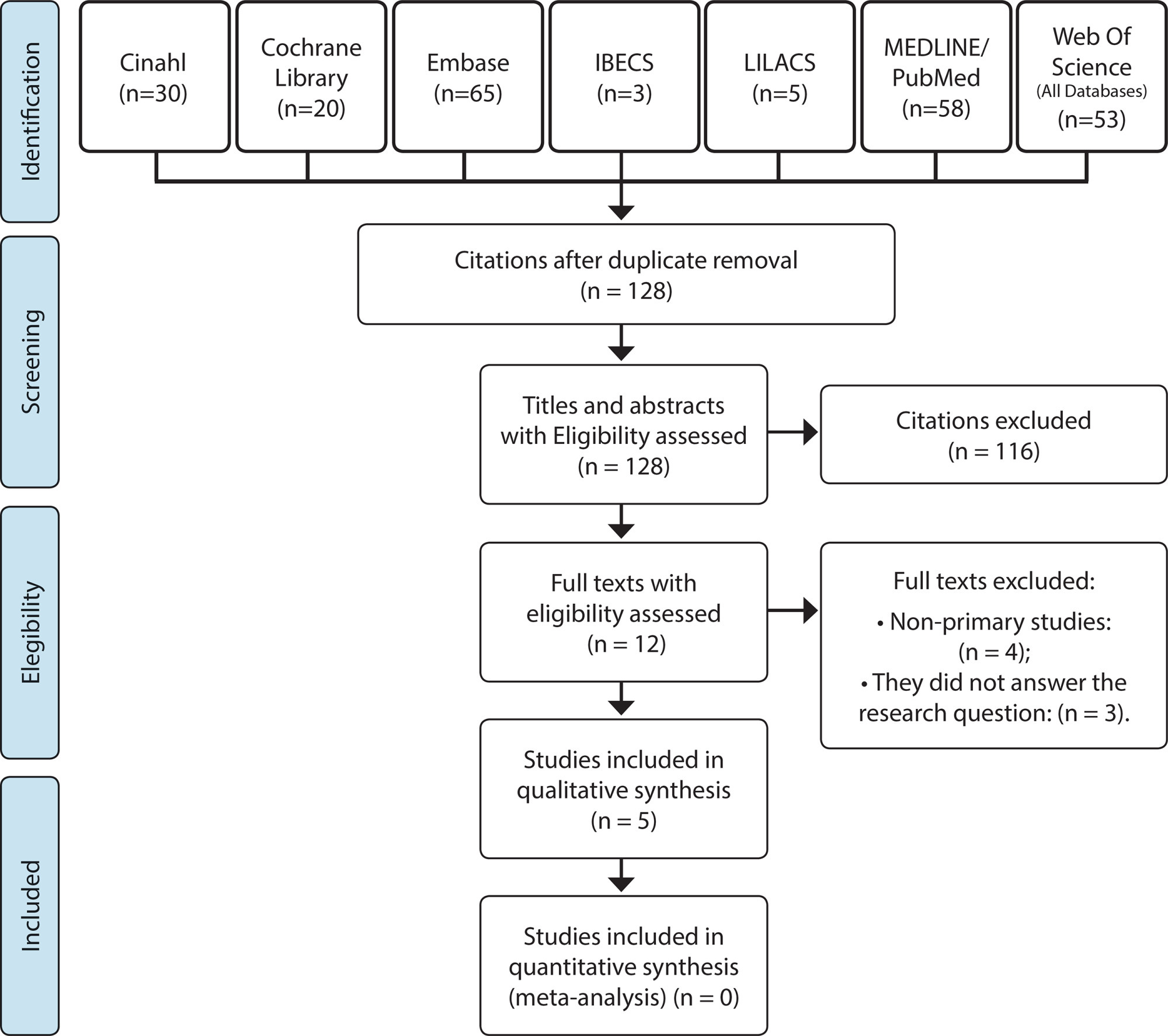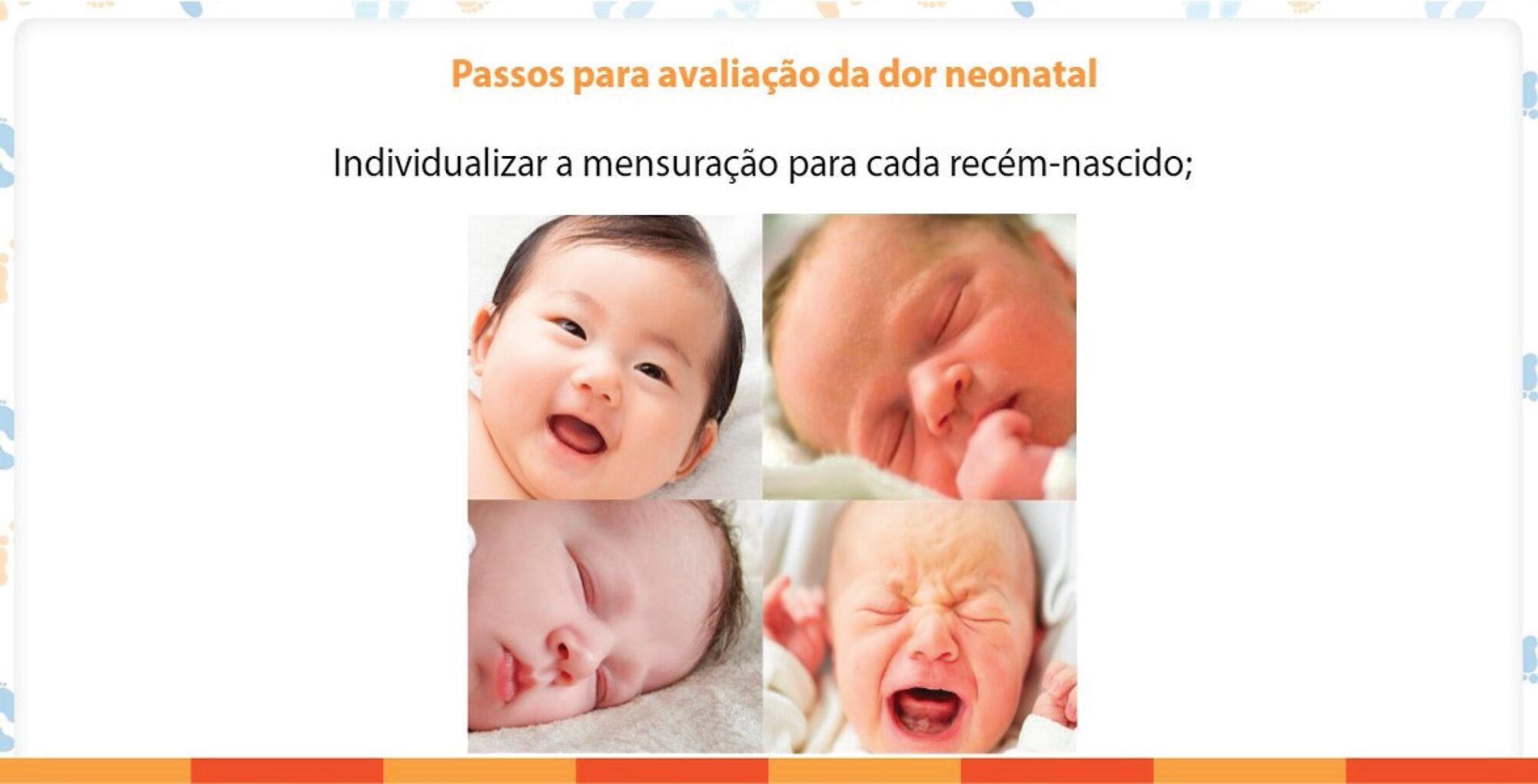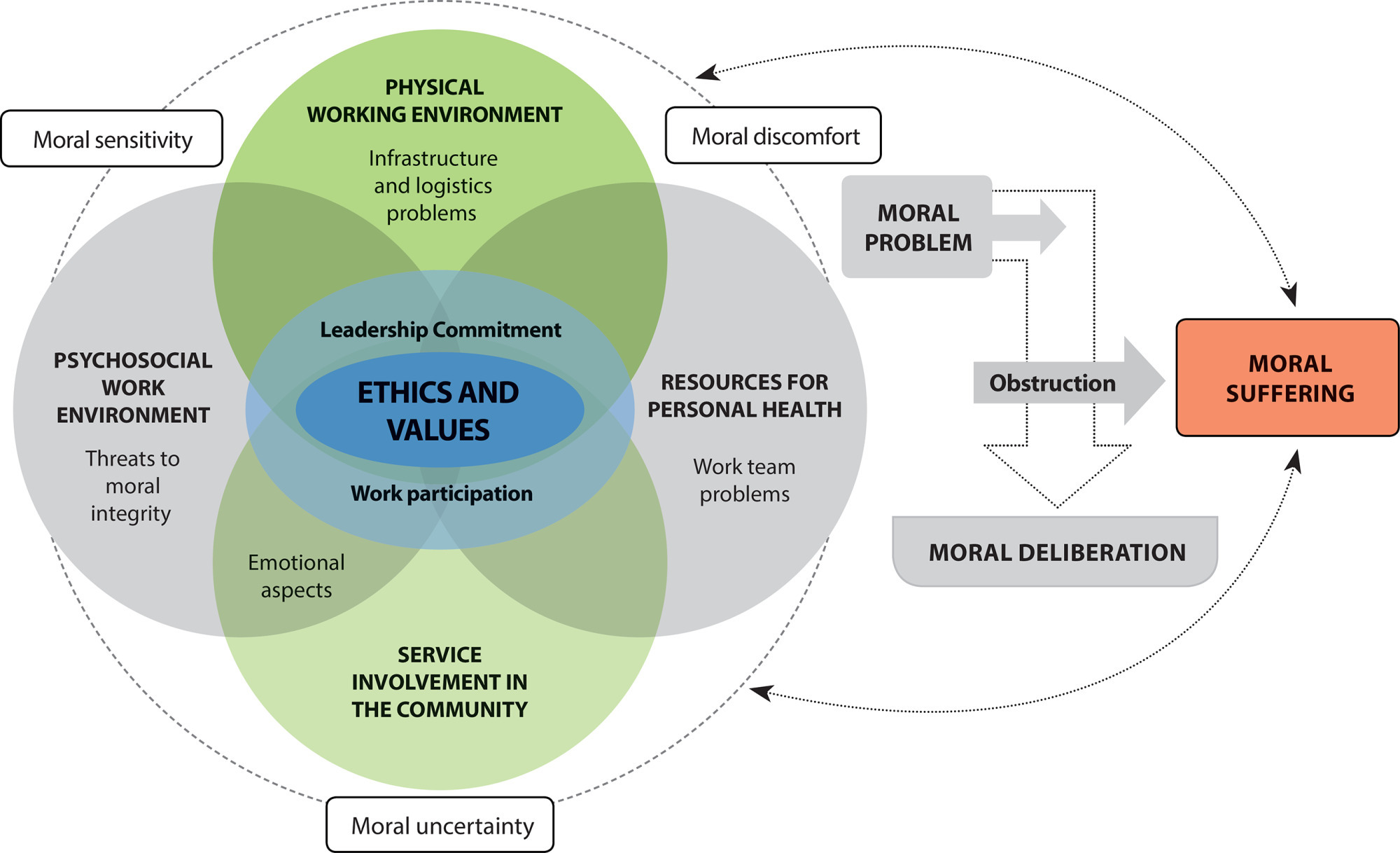-
RESEARCH01-01-2017
Mental health in the Family Health Strategy as perceived by health professionals
Revista Brasileira de Enfermagem. 2017;70(5):935-941
Abstract
RESEARCHMental health in the Family Health Strategy as perceived by health professionals
Revista Brasileira de Enfermagem. 2017;70(5):935-941
DOI 10.1590/0034-7167-2016-0492
Views0See moreABSTRACT
Objective:
to analyze the management of mental health needs in primary care as perceived by Family Health Strategy professionals.
Method:
this was a qualitative descriptive exploratory study developed within the coverage area of five family health teams. The data were collected using observation, group interviews, individual semi-structured interviews, and focus groups. Content analysis was conducted using text analysis software and interpretation was based on the corresponding analytical structures.
Results:
numerous and challenging mental health demands occur in this setting, for which the teams identified care resources; however, they also indicated difficulties, especially related to the operationalization and integration of such resources.
Conclusion:
there is a need for a care network sensitive to mental health demands that are better coordinated and more effectively managed.

-
RESEARCH01-01-2017
Nursing care by telehealth: what is the influence of distance on communication?
Revista Brasileira de Enfermagem. 2017;70(5):928-934
Abstract
RESEARCHNursing care by telehealth: what is the influence of distance on communication?
Revista Brasileira de Enfermagem. 2017;70(5):928-934
DOI 10.1590/0034-7167-2016-0142
Views0See moreABSTRACT
Objective:
Evaluate the perception of nurses regarding interpersonal communication while providing care via telehealth.
Method:
Qualitative research realized with seven nurses working in telehealth in Brazil, the sample was determined by data saturation. A questionnaire with open questions was applied and then content analysis of the dialogues was conducted, focusing on thematic analysis.
Results:
Four categories emerged from the dialogues: Understanding the importance of communication; the interpersonal relationship interfering with communication; Communicating via technology; and Learning the communication process.
Final considerations:
The perception of nurses working in telehealth in Brazil is that technology has facilitated their professional practice; however, in relation to the communication process, they believe it is harder to communicate by telehealth, mainly due to difficulty in perceiving nonverbal signals. To overcome these difficulties, they agreed that interpersonal communication is a skill that must be acquired during their professional training.
-
RESEARCH01-01-2017
Experiences in the Family Health Strategy: demands and vulnerabilities in the territory
Revista Brasileira de Enfermagem. 2017;70(5):920-927
Abstract
RESEARCHExperiences in the Family Health Strategy: demands and vulnerabilities in the territory
Revista Brasileira de Enfermagem. 2017;70(5):920-927
DOI 10.1590/0034-7167-2015-0033
Views0See moreABSTRACT
Objective:
To understand the daily demands of Family Health Strategy in clinical practice of the team and social vulnerabilities of community territory.
Method:
Research with qualitative approach, in a critical-reflexive perspective, held with two teams of the Family Health Strategy, in the city of Fortaleza, State of Ceará, Brazil. The participants were 22 users and 19 health professionals from the basic health network. Data from the interviews and observation were analyzed under the assumptions of critical hermeneutics.
Results:
We highlight the unveiling of sufferings and daily clashes, the influence of social determinants on health and psychosocial demands, limits and possibilities of everyday clinical practice.
Conclusion:
The clinic attention must recognize the perceptions and living conditions by listening and promoting health in the community.
-
RESEARCH01-01-2017
Neoliberalist influences on nursing hospital work process and organization
Revista Brasileira de Enfermagem. 2017;70(5):912-919
Abstract
RESEARCHNeoliberalist influences on nursing hospital work process and organization
Revista Brasileira de Enfermagem. 2017;70(5):912-919
DOI 10.1590/0034-7167-2016-0092
Views0See moreABSTRACT
Objectives:
To describe and analyze the influence of the neoliberal economic and political model on the nursing hospital work process and organization.
Method:
Qualitative descriptive research, having as its scenery a university hospital. The subjects were 34 nursing workers. The data collection took place from March to July 2013, through semi-structured interview. The data treatment technique used was content analysis, which brought up the following category: working conditions precariousness and its consequences to the hospital work process and organization in the neoliberal context.
Results:
The consequences of neoliberalism on hospital work process and organization were highlighted, being observed physical structure, human resources and material inadequacies that harms the assistance quality. In addition to wage decrease that cause the need of second jobs and work overload.
Final considerations:
There is a significant influence of the neoliberal model on hospital work, resulting on working conditions precariousness.
-
RESEARCH01-01-2017
Nursing team’s conceptions about the families of hospitalized children
Revista Brasileira de Enfermagem. 2017;70(5):904-911
Abstract
RESEARCHNursing team’s conceptions about the families of hospitalized children
Revista Brasileira de Enfermagem. 2017;70(5):904-911
DOI 10.1590/0034-7167-2016-0233
Views0See moreABSTRACT
Objectives:
to describe nursing team care and discuss the nursing team’s conception of companion families of hospitalized children. The study was based on the theoretical framework of Collière’s theory of nursing care identity.
Method:
this was a qualitative study with 14 members of a nursing team, conducted through an unstructured group interview. Thematic data analysis was employed.
Results:
habitual and repair care was delegated to families, regardless of the child’s clinical condition.
Final considerations:
the team’s official discourse about the families of hospitalized children, as recommended by the literature, refers to the family’s alterity and participation in care provision, with sights on discharge and defending family participation as beneficial to children. In practice, however, the nursing staff makes concessions about the presence of chaperoning families and delegates care.
-
RESEARCH01-01-2017
Innovation in nursing health care practice: expansion of access in primary health care
Revista Brasileira de Enfermagem. 2017;70(5):898-903
Abstract
RESEARCHInnovation in nursing health care practice: expansion of access in primary health care
Revista Brasileira de Enfermagem. 2017;70(5):898-903
DOI 10.1590/0034-7167-2016-0131
Views0See moreABSTRACT
Objective:
analyze the reorganization of the health care practice of nurses as an innovative strategy for expansion of access in primary care.
Method:
qualitative and quantitative study, which interviewed 32 management and care nurses and collected documentary data from public reports of production of nursing consultations from 2010 to 2014, in a municipality in southern Brazil. Data processing for textual analysis was performed by IRAMUTEQ software; for simple descriptive statistical analysis, the program Excel 2013 was used.
Results:
in the innovative care practice class, associated with awareness of change, related to implementation of the FHS, its challenges and advantages, the following subclasses were identified: reorganization of schedules, nursing consultation, physical restructuring of BHUs, and shared consultation.
Final considerations:
the need to expand access to and valorization of care practice encourages the development of innovative strategies. The protagonism of care needs to be discussed in the various spaces so that each professional carry out the respective role with competence and efficacy.

-
01-01-2017
The Nursing work and the construction of a democratic society
Revista Brasileira de Enfermagem. 2017;70(5):896-897
Abstract
The Nursing work and the construction of a democratic society
Revista Brasileira de Enfermagem. 2017;70(5):896-897
DOI 10.1590/0034-7167.2017700501
Views0In Brazil, the Nursing work is performed by an expressive contingent of workers, which – according to the last survey by the Brazilian Nursing Association – comprised 1,856,683 professionals, mostly women, distributed into three professional categories: Nurses, Nursing Technicians and Nursing Assistants, who work in public and private health care networks. With salaries lower than […]See more -
01-01-2017
O trabalho em Enfermagem e a construção de uma sociedade democrática
Revista Brasileira de Enfermagem. 2017;70(5):896-897
Abstract
O trabalho em Enfermagem e a construção de uma sociedade democrática
Revista Brasileira de Enfermagem. 2017;70(5):896-897
DOI 10.1590/0034-7167.2017700501
Views0No Brasil, o trabalho em enfermagem é realizado por expressivo contingente de trabalhadores, que, de acordo com o último levantamento realizado pela Associação Brasileira de Enfermagem, somava 1.856.683 profissionais, em sua maioria mulheres, distribuído em três categorias profissionais: Enfermeiros, Técnicos e Auxiliares de Enfermagem que atuam na rede pública e privada de saúde. Com baixos […]See more
-
03-09-2020
Psychiatric nursing and mental health teaching in relation to Brazilian curriculum
Revista Brasileira de Enfermagem. 2020;73(2):e20180200
Abstract
Psychiatric nursing and mental health teaching in relation to Brazilian curriculum
Revista Brasileira de Enfermagem. 2020;73(2):e20180200
DOI 10.1590/0034-7167-2018-0200
Views0See moreABSTRACT
Objectives:
to know the scientific production on psychiatric nursing and mental health teaching in relation to Brazilian nursing curriculum.
Methods:
an Integrative Literature Review with no temporal delineation, whose data collection took place in ten Brazilian and international databases, adding to the total 35 objects of analysis.
Results:
a priori categories were adopted, consisting of the psychiatric nursing and mental health teaching in Brazil according to the 1923, 1949, 1962, 1972, 1994 and 2001 nursing curriculum, presented in the light of the dimensions: thought model; places of practice; methods or contents used; and profile or skills of the student.
Final considerations:
the study made it possible to observe psychiatric nursing and mental health teaching historical evolution, indicating that teaching transformations involved changes in curriculum, Psychiatric Reform and the way nursing undergraduate courses and schools take these determinants.
-
ORIGINAL ARTICLE04-03-2020
Nurse as an integrator in healthcare management of children with chronic condition
Revista Brasileira de Enfermagem. 2020;73(3):e20180453
Abstract
ORIGINAL ARTICLENurse as an integrator in healthcare management of children with chronic condition
Revista Brasileira de Enfermagem. 2020;73(3):e20180453
DOI 10.1590/0034-7167-2018-0453
Views0See moreABSTRACT
Objectives:
to understand the practice of the nurse in healthcare management of children with chronic condition in the hospital setting.
Methods:
analytical study of qualitative approach with theoretical and methodological reference of institutional ethnography. Developed in the pediatric unit of a university hospital, in a municipality in Northeastern Brazil. Data collections techniques were: participant observation, documentary analysis and semi-structured interview. Participants of the study totaled twenty professionals, including nurses, social workers, psychologists, pharmacists, nutritionists, physiotherapists, and doctors. For data analysis, it was used the Bardin’s Content Analysis with interface of the Atlas.ti software.
Results:
categories of analysis were “Nurse as mediator of healthcare management”; “Nursing process as a mechanism of healthcare management”.
Final
considerations: the nurse proved to be essential for healthcare management of the child with chronic condition, acting as mediator of the relationship between the doctor, the members of the health team, the user and their family.
-
REVIEW10-19-2020
Effectiveness of skin protectors and calendula officinalis for prevention and treatment of radiodermatitis: an integrative review
Revista Brasileira de Enfermagem. 2020;73:e20190815
Abstract
REVIEWEffectiveness of skin protectors and calendula officinalis for prevention and treatment of radiodermatitis: an integrative review
Revista Brasileira de Enfermagem. 2020;73:e20190815
DOI 10.1590/0034-7167-2019-0815
Views0See moreABSTRACT
Objective:
to analyze the effectiveness of skin protectors and Calendula officinalis for prevention and treatment of radiodermatitis.
Method:
an integrative review conducted at CINAHL, Cochrane Library, Embase, MEDLINE/PubMed, IBECS, LILACS, and Web of Science. The final sample consisted of five studies, four clinical studies and one preclinical. Critical appreciation and narrative synthesis of the findings were carried out.
Results:
the Cavilon™ skin protector was more effective than Sorbolene (cream with 10% glycerin) and less effective than Mometasone Furoate cream. Calendula officinalis was more effective than Trolamine and essential fatty acids and less effective than Ching Wan Hung® for prevention and treatment of radiodermatitis.
Conclusion:
data confirm the potential of Calendula officinalis for prevention and treatment of radiodermatitis and point to promising results regarding skin protector use; however, there is a need for further testing as to the effectiveness of such products.

-
ORIGINAL ARTICLE07-08-2020
Cognition and quality of life relationship among the elderly community: a cross-sectional study
Revista Brasileira de Enfermagem. 2020;73:e20190030
Abstract
ORIGINAL ARTICLECognition and quality of life relationship among the elderly community: a cross-sectional study
Revista Brasileira de Enfermagem. 2020;73:e20190030
DOI 10.1590/0034-7167-2019-0030
Views0See moreABSTRACT
Objective:
to assess cognitive functions and their association with quality of life among elderly people enrolled in a Family Health Unit (FHU) of Primary Health Care in Recife-PE.
Methods:
a quantitative, descriptive, cross-sectional study in which elderly aged 60 years and over were studied.
Results:
76.7% of the elderly were women and the age group was less than or equal to 70 years. 68.6% had cognitive impairment, and in the quality of life assessment it was found that the social participation facet had the highest mean score among the elderly (14.25), while the lowest was observed in the sensory functioning facet (9.10). There was an association between cognitive decline and quality of life.
Conclusion:
most of the elderly had good quality of life rates, but low cognitive level. Using screening tools allows early detection of health problems, guiding the nursing staff in the construction of preventive measures.

-
ORIGINAL ARTICLE05-18-2020
Expert assessment of the “Neonatal Pain Assessment Program” online course
Revista Brasileira de Enfermagem. 2020;73(4):e20180392
Abstract
ORIGINAL ARTICLEExpert assessment of the “Neonatal Pain Assessment Program” online course
Revista Brasileira de Enfermagem. 2020;73(4):e20180392
DOI 10.1590/0034-7167-2018-0392
Views0See moreABSTRACT
Objectives:
to assess layout quality, visual identity and content of the “Neonatal Pain Assessment Program” (Programa de Avaliação da Dor Neonatal) online course.
Methods:
a descriptive exploratory study. The course was assessed by 24 experts in pain, neonatology and education. A form containing 20 questions on technical, interface and educational aspects was used. For each item, the score ranged from 0 to 1. Mean scores above 0.7 were considered indicative of high quality of the items. Descriptive statistics were used for data analysis.
Results:
navigation, clarity, ease of localization, content relevance, contextualization, content correction, multiple windows, ease of use, ease of return, ergonomics, esthetics, special brands, audiovisual resources, information and portability were assessed. All aspects obtained a mean ≥ 0.70 and no changes were required.
Conclusions:
the Neonatal Pain Assessment Program is considered as quality educational technology and promising strategy for health education.

-
05-28-2021
Are symptoms of depression and anxiety in nursing students associated with their sociodemographic characteristics?
Revista Brasileira de Enfermagem. 2021;74:e20200503
Abstract
Are symptoms of depression and anxiety in nursing students associated with their sociodemographic characteristics?
Revista Brasileira de Enfermagem. 2021;74:e20200503
DOI 10.1590/0034-7167-2020-0503
Views0See moreABSTRACT
Objective:
to investigate symptoms of depression and anxiety and their association with the sociodemographic characteristics of undergraduate nursing students.
Methods:
a cross-sectional analytical study carried out with students from the Faculty of Nursing at Universidade Federal de Juiz de Fora from June to July 019. Data were collected through a sociodemographic questionnaire and the Beck Depression and Anxiety Inventories.
Results:
192 students participated, with a mean age of 21.44 (±3.56) years. 85.93% of participants were female. The mean depression score was 22.40 (±12.35), and anxiety was 17.56 (±11.98). There was a difference in the mean of the scales for sex and psychotropic drugs (p<0.05). Women presented moderate and severe classification for both scales. Severe symptoms prevailed among students from the 6th to the 10th semester (18.22%).
Conclusion:
there was an association between depression and anxiety symptoms related to gender and psychotropic drugs.
-
01-22-2021
Humanization practices in the parturitive course from the perspective of puerperae and nurse-midwives
Revista Brasileira de Enfermagem. 2021;74:e20190743
Abstract
Humanization practices in the parturitive course from the perspective of puerperae and nurse-midwives
Revista Brasileira de Enfermagem. 2021;74:e20190743
DOI 10.1590/0034-7167-2019-0743
Views1See moreABSTRACT
Objective:
to understand humanization practices in the parturitive course from the point of view of purperae and nurse-midwives.
Methods:
an exploratory, descriptive, qualitative research carried out in a maternity hospital in Bahia State. Semi-structured interviews were carried out, with a structured script applied to 11 mothers and 5 nurse-midwives from March to June 2019. Analysis followed Bardin’s content structure.
Results:
this study unveiled the importance of using soft care technologies, respect for female role, active participation and women’s autonomy as a positive impact on the parturition process.
Final considerations:
nurse-midwives are qualified professionals to assist women in labor and birth. They can favor the implantation and implementation of care with humanization practices, respect for women’s choices and incentive to the normal way of delivery with an expanded view of individual and multidisciplinary needs.
-
03-05-2021
Moral suffering in health professionals: portrait of the work environment in times of COVID-19
Revista Brasileira de Enfermagem. 2021;74:e20200653
Abstract
Moral suffering in health professionals: portrait of the work environment in times of COVID-19
Revista Brasileira de Enfermagem. 2021;74:e20200653
DOI 10.1590/0034-7167-2020-0653
Views0See moreABSTRACT
Objective:
To analyze potential triggers of moral suffering experiences of health professionals, reported in the media, during the COVID-19 pandemic and to propose a theoretical construct of analysis.
Methods:
Study with qualitative approach whose data source were 50 reports published online, collected passively and actively, submitted to Content Analysis with the help of ATLAS.ti software.
Results:
The potential moral problems that trigger moral suffering are related to the threat to moral integrity, infrastructure/logistics and teamwork problems, and emotional aspects, revealing their articulation with damage to the foundations of a healthy work environment, which generated the proposal of a construct.
Final considerations:
The articulation between the experiences of moral suffering and the commitment of the fundamentals of a healthy work environment has brought important contributions to the adoption of strategies to protect and stimulate moral deliberation by professionals in favor of practice and society.

Search
Search in:
Nuvem de Tags
Adolescente (85) Atenção Primária à Saúde (239) COVID-19 (91) Criança (91) Cuidados de Enfermagem (269) Educação em Enfermagem (151) Educação em Saúde (139) Enfermagem (930) Enfermagem Pediátrica (86) Estudantes de Enfermagem (77) Estudos de Validação (131) Família (87) Idoso (208) Promoção da Saúde (99) Qualidade de Vida (104) Saúde do Trabalhador (86) Saúde Mental (145) Saúde Pública (82) Segurança do Paciente (150) Tecnologia Educacional (100)



